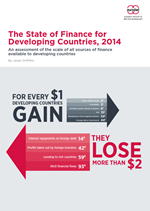Published on Thu, 2015-01-15 23:00
Human rights experts warned that World Bank plans to delegate responsibilities for environmental and social monitoring to private banking institutions sub-lending on its behalf will effectively weaken both the level of protection currently offered by environmental and social safeguards and the Bank’s accountability for their implementation. The analysis was part of a letter to the World Bank President Mr. Jim Kim by 28 UN human rights thematic mandate-holders – an unprecedented number acting together on a single issue – conveying several concerns regarding the World Bank’s latest draft of its Social and Environmental Safeguards (“draft ESF”). |
Published on Fri, 2014-12-26 08:56
Even after four UN Conferences and four specific Programmes of Action for addressing special development challenges of LDCs, the number of LDCs has doubled from 24 in 1971 to 48 now. Only four countries have graduated out of the LDC category so far. Hence, it is critical that LDCs and development partners act with greater political will to materialise their commitments defending LDCs’ developmental interests and priorities. Above all, it’s the accountability to LDC peoples that is key and of utmost priority. There are many issues that the people of LDCs and the governments face, that stand as roadblocks to graduation. The dominant development paradigm and the current international aid architecture, which overwhelmingly prioritizes profits and markets have failed in addressing the development challenges faced by LDCs. |
Published on Tue, 2014-12-23 09:28
For the fourth successive year, a delegation of human rights and development civil society organizations from the Arab region will be visiting the European institutions in Brussels between the 8th and the 12th of December 2014. The Arab delegation includes civil society representatives from Egypt, Jordan, Palestine, Morocco, Syria, Tunisia and Lebanon. This visit seeks to provide a platform for dialogue and exchange between civil society organizations from the Arab region and European policy makers at the Parliament and Commission around the EU’s support and involvement in the region. |
Published on Mon, 2014-12-22 09:28
This report provides the most comprehensive review of the quantity of different financing sources available to developing countries, and how they have changed over the past decade. They have analysed the best available data produced by international institutions, both from the point of view of developing countries as a whole, and for low-income (LICs), lower-middle-income (LMICs) and upper-middle-income countries (UMICs) separately. The report provides figures in absolute terms in US dollars, and also as percentages of Gross Domestic Product (GDP) – a much better indicator of how important they are to the developing country in question. |
Published on Sat, 2014-12-20 23:00
In a letter to the World Bank President Mr Jim Kim, 28 UN human rights thematic mandate-holders conveyed several concerns regarding the World Bank’s latest draft of its Social and Environmental Safeguards. The Bank is embarked in a process to reform and streamline its Safeguard policies, process which Mr Kim had earlier promised will not lead to their dilution. Referring to the draft Bank document, however, the letter stated that “by contemporary standards, the document seems to go out of its way to avoid any meaningful references to human rights and international human rights law.” |







